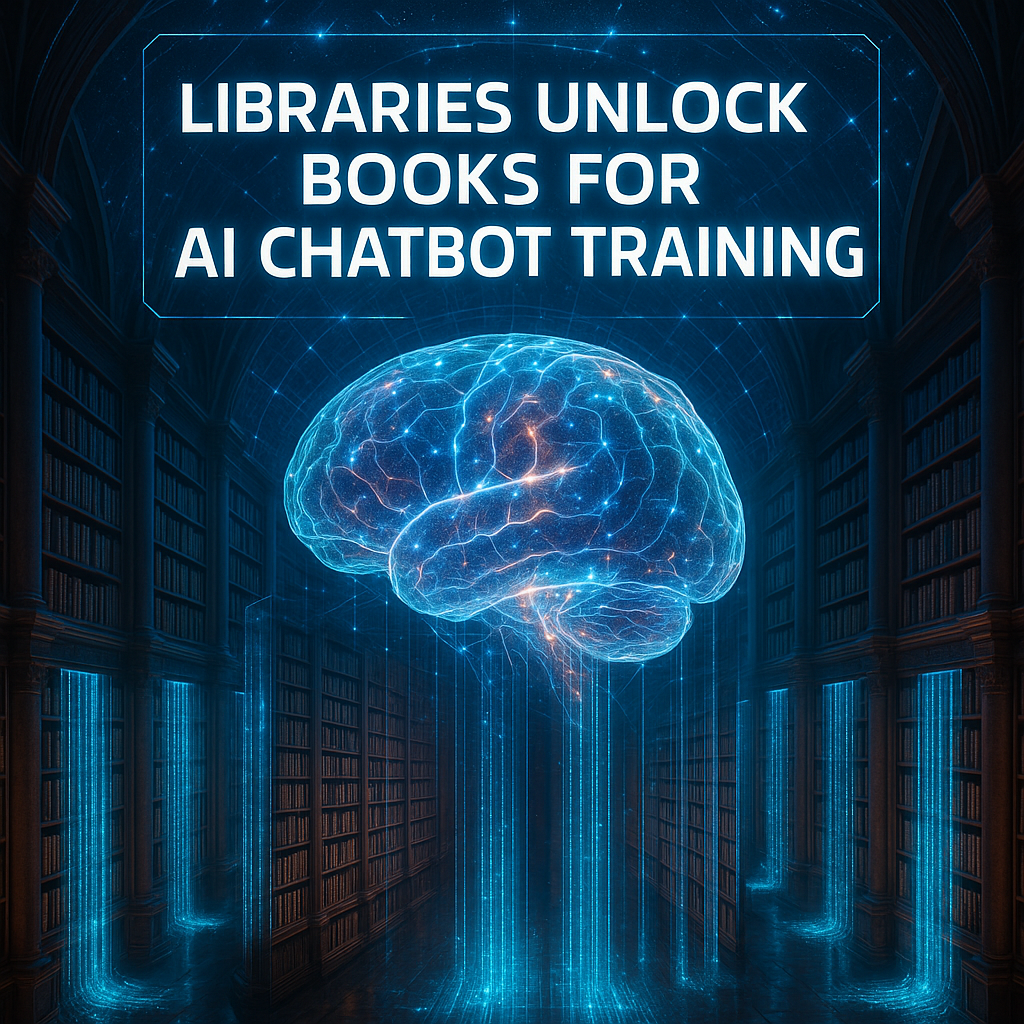
AI chatbots need more books to learn from. These libraries are opening their stacks
# Unlocking Past Wisdom for AI: Unveiling the Libraries of Knowledge
In the relentless forward march of technology, artificial intelligence has been predominantly fed by the digital universe, consuming the vast and expansive content available on the internet. Yet, to truly instill the essence of humanity within AI, tech companies and researchers must look beyond the ephemeral chatter of online discourse. The answer lies in the corridors of ancient knowledge — the timeless archives stored within our libraries.
## Delving Into the Depths of Knowledge
In an unprecedented collaboration, Harvard University and the Boston Public Library are offering AI researchers access to an extraordinary repository of nearly one million books. Published as far back as the 15th century and written in 254 languages, this collection transcends the repetitive and sometimes superficial nature of internet content. Alongside these books, collections of old newspapers and government documents await exploration by AI, inviting a nuanced understanding of human thought and history.
By extracting insights from diverse epochs and cultures, AI can develop a multifaceted understanding of humanity. This initiative emphasizes the importance of grounding artificial intelligence in the richness of historical context and varied human experiences.
As the collaboration unfolds, it prompts a realization: The quest for AI’s deeper understanding of humanity is as much about reaching into the past as it is stretching towards the future. The knowledge ensconced within dusty volumes reflects an unbroken lineage of human thought, aspirations, and creativity.
## A Personal Reflection on the Past and Present
The philosophy driving this effort resonates deeply with my own experiences of immersing in libraries, guiding my exploration beyond the surface skimming allowed by digital interactions. Libraries offer a sanctum where the quiet rustle of pages turns into a dialogue with history. In my own journey, the written words of the past have often illuminated the intricate tapestry of the present.
Books transcend time, telling stories that are larger than the moment; history lessons, poetic masterpieces, and philosophical musings encapsulate the breadth of human emotion and intellect. This foray into libraries has consistently offered me an understanding that mere data points from modern sources could never furnish. It offers an invitation to experience empathy through narratives written long before my time.
Indeed, “everything ever said on the internet” captures only a fragment of human knowledge. The vast array of books available in Harvard University and Boston Public Library’s collections is a reminder of the depth that lurks beneath our everyday perceptions.
## What AI Stands to Gain
Opening the floodgates of knowledge from these repositories is set to enrich artificial intelligence in substantial ways:
– **Cultural Richness**: With texts spanning 254 languages, AI can cultivate a more global cultural literacy, aiding in more nuanced interactions across different societies.
– **Historical Context**: Understanding historical narratives allows AI to adopt a perspective informed by the successes and failures of past societies, potentially enhancing decision-making frameworks rooted in historical lessons.
– **Depth of Understanding**: As AI internalizes complex themes from literature and philosophy, it stands to engage with humans on a more sophisticated emotional and intellectual level.
This is a significant learning moment — both for the AI community and the broader technological landscape. By engaging with library materials, AI shifts from being a repository of facts to becoming a more empathetic and enlightened entity.
## Inviting New Engagements with Our Past
The introduction of library stacks to the AI lexicon not only enhances technological capabilities but also encourages us to question our relationship with technology. How might our interactions improve as AI begins to comprehend the vast layers of human emotion encapsulated in centuries-old narratives? By deepening the breadth of information consumed through these projects, researchers, developers, and ultimately users, access a well of knowledge that reshapes the role AI plays in our daily lives.
The beauty of this initiative lies in its promise of a more rounded AI and, by extension, a more enriched human experience. The question that naturally arises is: What stories, lessons, and wisdom might emerge from the forgotten pages unearthed by modern-day technology?
As we stand at the cusp of an era where AI seeks not only to comprehend but to empathize and engage with the human condition, it is worth pondering: When ancient wisdom meets cutting-edge technology, what new realms of understanding await us?
Such questions invite a future where technology is not a mere tool but a companion, bringing the depth of human history to bear on the future we collectively construct. And as we look to the forgotten tomes of the past for guidance, let us consider how this knowledge can inspire innovation, ethical reflection, and new levels of human-machine symbiosis.
The books in libraries have waited patiently for centuries. Now is their time to speak again — this time, through the voices of artificial intelligences that are poised to learn from their silent pages.


